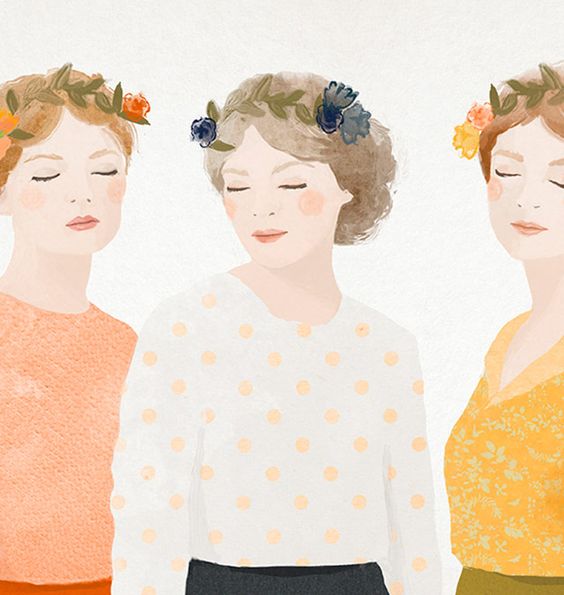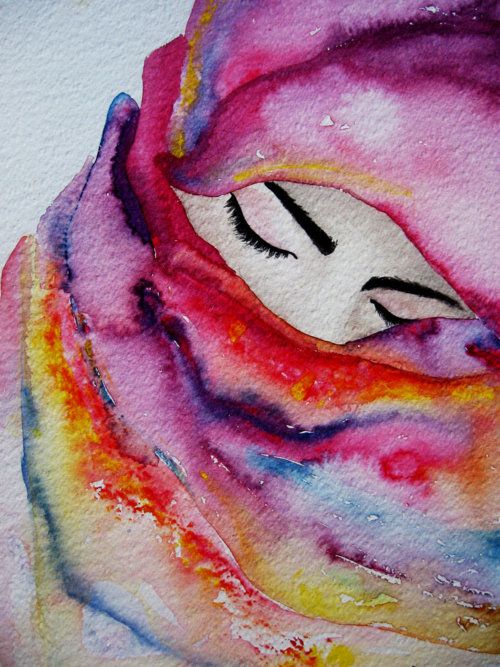
Let’s talk today a little about a few interesting women from the Bible. I love the Bible for the vivid history and people it contains and I want to share with you from the lives of Deborah, Ruth and Esther. Who were they? In a nutshell, Deborah was the fourth judge of pre-monarchic Israel, she was also a counselor and warrior. Ruth was a Moabitess, the widow of Mahlon, but went on to marry Boaz, her kinsman redeemer. Esther, born Hadassah, was the Jewish queen of the king Xerxes I, she was known for her beauty and wisdom. As 21st century women, what can we learn from these characters who lived sometime around 1000 BC? Let’s find out.
Deborah, tough chick. This extraordinary woman, as I said earlier, was a judge, counselor, warrior and prophetess in ancient Israel. She used to sit under a luscious date palm tree between Ramah in Benjamin and Bethel in the land of Ephraim. Many people in Israel came up to her for wise advice and judgement. A unique personality, she was a dynamic leader. We may assume that her schedule must have been too hectic for domestic life but it was not so, she was the wife of a man named Lapidoth and did not let her professional life affect her family. Deborah’s greatest achievement is the rebellion she invoked among the Israelites against their oppressor, the evil king of Canaan, Jabin and prophesied that Israel will prevail only through the help of a woman.
Deborah ordered Barak, a fellow judge to gather ten thousand troops and lead them to Mt Tabor to attack the Canaanites whose military leader was Sisera. The cloudburst during the battle at Mt Tabor caused the Canaanite chariots to so lose momentum that the malevolent Sisera had to flee for his life. He ran for shelter into the tent of a Kenite woman, Jael. Jael gave him a drink of milk which coaxed him to fall asleep from fatigue, she then killed him by driving a tent peg through his head. When Barak came looking for his nemesis, Jael revealed to him Sisera, dead in her tent.As Deborah prophesied, a battle was fought, and Sisera was completely defeated! The Bible tells us that after the battle there was peace in the land for 40 years, what an amazing woman!
Ruth, loyal and kind. When there was a famine in the land of Israel, Elimelech and Naomi and their sons Mahlon and Kilion left to a neighboring country named Moab. There, the boys came of age and married Moabite women, Ruth and Orpah. When Elimelech, Mahlon and Kilion died unexpectedly, Orpah went back to her people but Ruth stayed on. The vow she made to her mother-in-law Naomi are some of the most iconic verses in the Bible and are read even today. Ruth followed Naomi all the way back home to Bethlehem just as the Barley harvest there was beginning, many people recognized Naomi (meaning ‘sweet and pleasant’) but she asked them to call her Marah instead, as her life had indeed turned bitter. The two widows lived together and sustained themselves with whatever little they had but their grey cloud found its silver lining when Boaz entered the picture. He was their kinsman redeemer which basically means their nearest relative, or so it seemed.He allowed Ruth to glean in his barley fields and gave her special attention and care. Her devotion to the mother of her dead husband and desire to work hard to earn a living was endearing, this was to soon develop into love and affection.
One night Ruth, on Naomi’s orders, entered the threshing floor where Boaz was asleep and lay down at his feet. A startled Boaz awoke in the middle of the night and declared his love for the young widow and promised to marry her. The next morning, after Ruth had left, Boaz went about making swift arrangements to wed Ruth, he even checked with the actual kinsman redeemer if it would be okay to marry Mahlon’s widow and was overjoyed when the man consented. The book of Ruth ends with the wedding of Ruth and Boaz, the birth of their son Obed, which made her the great grandmother of the most popular ruler of Israel, king David. And from David’s bloodline was born, the Savior of the world, Jesus Christ.
Esther, beauty queen with brains to match. Esther, then Hadassah, was the daughter of Abihail, a Benjamite, who had been carried away into captivity by Nebuchadnezzar, King of Babylon. She lived with her cousin Mordecai. Born as Jews, Hadassah and Mordecai kept the law, even if they were in a foreign land. When Vashti, the wife of king Xerxes was deposed for a petty matter, the beautiful Jewish girl was one of the many young maidens who were carried away to the harem in the palace, for the king to choose a new bride. She was named Esther and was soon everyone’s favorite, it also wasn’t long till the great king Xerxes I picked her to his queen. Esther and Xerxes were married with pomp and show and it seemed as though they were meant to be. What the monarch did not realize was that Esther was not just a pretty face, she was extremely intelligent and more importantly, a devout worshiper of God.
Queen Esther was put to test when there was news declared that all the Jews in Susa, the kingdom’s capital, were to be executed. Haman, the king’s vizier hated the Jews because of Mordecai’s refusal to pay him obeisance. The Bible says that when she heard this her heart was ‘frozen with fear.’ Along with her good looks, she had the brains to work out an ingenious, but risky plan to save her people. As perilous as her scheme was, Esther wasn’t alone. The queen and her maids fasted for 3 days and 3 nights, and spent time praying and asking God for strength and wisdom, all the Jews of Susa lay in sackcloth and prayed for God’s help. At the end of her fast Esther dressed in finery and made her way to the king’s court. It’s not a joke to appear before a mighty king and especially after a 3 day fast. No one must enter the court without the king’s summon, not even his queen, but God was with Esther. As she walked up to the king, it seemed as though she would meet Vashti’s fate, but as soon as he saw his wife, he broke into a smile and extended his golden scepter so Esther could touch the end of it. He was so pleased with her that offered her up to half the kingdom, Esther only smiled and invited him to join her for a banquet she had prepared, Haman was the other guest, there were 2 banquets in total, one each day.
At the end of the third day the king was so delighted with Esther that he was ready to fulfill any wish she could have, Esther, at that opportune moment started begging for her life and the lives of her people. The surprised Xerxes, when finding out who the perpetrator was, ordered Haman to be hanged on the same gallows that the vizier had built for Mordecai. Talk about the predator becoming the prey. The Jewish people were saved, their enemies annihilated, and the event is celebrated to this day in the festival of Purim.
Let’s come to the crux of the matter, shall we? Deborah believed she was the daughter of the Most High God. She was not moved by the world for her God was with her and went before her. She did not fear because she was under the protection of God. Deborah teaches us that God made women to be as tough as nails. Ruth was a brave widow who didn’t go back to what was familiar, she stepped out in faith and walked into the unknown. Her courage brought her to her divine destiny. Ruth teaches us to never look back. Esther was a queen who knew the power of when to speak and when to remain silent. She was aware that she was put in a place of power to save the lives of her people when the time came and not to be just another beautiful bride in the parade of Xerxes’ brides. Esther teaches us that God is in control of all situations even when it seems otherwise. Reader, take a moment to ponder over these few thoughts. Maybe you see yourself as one or all three of these influential characters. If you can’t yet, spend a while in quiet surrender and invoke your inner Deborah, Ruth and Esther. This might just enable you to live the life you are called for and be all the woman you are destined to be. You, dear reader, are worthy of an abundant life.



